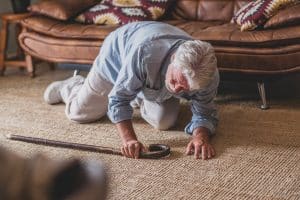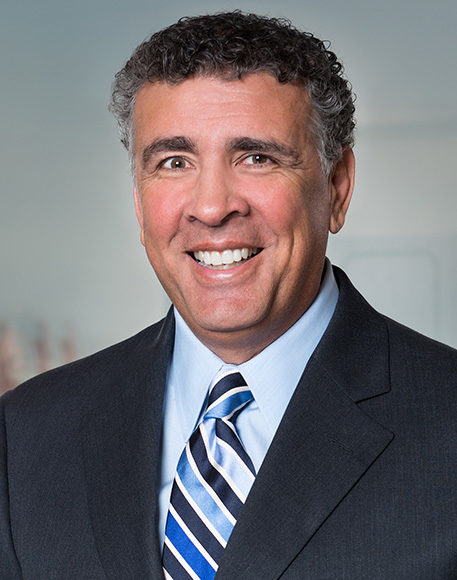How Can You Reduce Your Elderly Loved One’s Risk of a Fall?
 It is no secret that elderly individuals are prone to falls. While young adults have the ability to get back up, recover quickly, and return to their daily lives, elderly people usually do not have this same luck. In fact, falls are one of the top causes of deaths among elderly individuals. It may be beneficial for you to work with your elderly loved one and develop ideas on how to reduce their risk of a fall. Here are 10 ways that you can do this.
It is no secret that elderly individuals are prone to falls. While young adults have the ability to get back up, recover quickly, and return to their daily lives, elderly people usually do not have this same luck. In fact, falls are one of the top causes of deaths among elderly individuals. It may be beneficial for you to work with your elderly loved one and develop ideas on how to reduce their risk of a fall. Here are 10 ways that you can do this.
1. Try to keep your elderly loved one active
One of the first and most beneficial steps that you can take to reduce your elderly loved one’s risk of a fall is to encourage them to stay active. This can be difficult as they may prefer to sit around, watch television, and relax. However, if you create an exercise plan and even join in with them, you may be able to make this a fun activity to do together. For example, you can choose to walk around the block a couple times each evening. During this time, you both can talk about your day, move your muscles and joints, and help build your loved one’s balance up. When your loved one stops moving, they lose their balance and muscle strength, leading to more falls.
2. “Fall proof” your home for when your elderly relative visits
There are various ways that you can make sure your home and premises are fall-proof when your loved one visits. This may include making a clear path for them to walk, turning on more lights for them to see, getting rid of unnecessary clutter, adding bars around your home and stairs for them to hold onto, putting down a non-slip bath mat, getting rid of rugs, and more.
3. Know your elderly family member’s medications and side effects
As individuals become older, the more medications that they are prescribed and required to take. Unfortunately, these medications frequently come with a list of side effects, which usually includes drowsiness, sleepiness, dizziness, or fatigue. If your loved one is taking medications, you may want to look at the side effects to see if they increase their chances of falling. You can discuss with their doctor about the possibility of changing medicines if there is a risk of falls associated with their current prescribed medications.
4. Make sure that your loved one is getting enough sleep
Many people do not think much about this, but fatigue is a common cause for falling. Therefore, you can encourage your loved one to sleep more or help them develop a better nighttime routine to reduce their chances of falling.
5. Consider purchasing mobility devices
There are various products and devices available to prevent elderly loved ones from falling. A few of these products and devices are canes, walkers, and wheelchairs. By encouraging your loved one to use these products or devices, you may be able to prevent their falls.
6. Avoid trips during inclement weather
Always keep a check on the weather before you take your elderly relative somewhere. If inclement or rainy weather is on the way, it is best for them to stay inside to avoid wet, slippery, or icy sidewalks or pavements. In addition, if you take your loved one to a supermarket or grocery store, it is highly recommended that you keep an eye out for spilled products or recently mopped floors. The last thing you want is your elderly relative to slip on the floor and fall.
7. Make sure they have had a recent eye exam
As we become older, our eyes tend to change. This means that they usually become worse over time. You will want to make sure your family member receives an eye exam every so often. They may not realize that their eyes have changed significantly since their last appointment, affecting their ability to see. If they get new glasses or contacts, this may reduce their risk of falling.
8. Ensure that your loved one’s home or living space is safe, clutter-free, and has the proper lighting
If your loved one lives in their own home, a nursing home facility, or an assisted care facility, you should take the time to make sure that their living space is safe and clutter-free. When assessing their living situation, you may decide to install more lighting, move and get rid of certain things, and make sure they have a clear path to walk. This may make a huge difference in helping them avoid falls.
9. Purchase appropriate footwear for your elderly loved one
Many people tend to focus on style instead of safety when shopping for shoes. However, good shoes that prevent falls are critical for elderly individuals. Therefore, you want shoes without heels, with a good grip on the bottom, and with rubber soles. In addition, you may want to consider picking up some new socks for them that have a grip on the bottom. This will help prevent slip and falls when your loved one is walking around without shoes on.
10.Take your family member to their routine doctor appointments
Another one of the most important steps that you can take is to go with your family member to their routine doctor appointments. You can notify the doctor about your elderly relative’s balance issues, any recent falls that they have experienced, or anything else that you feel like is worth discussing. Their doctor will likely check for any new health conditions, help you create a plan to decrease their chances of falling, and even make recommendations or referrals to physical therapists or other specialists to help your family member regain strength and balance again.
If your family member or loved one suffers injuries as a result of a fall in a nursing home, the nursing home fall attorneys at Garcia & Coman are here to help. We will listen to their experience, gather evidence to support their claim, guide them through the entire legal process, and work endlessly to hold negligent nursing homes or caregivers accountable for their actions. Contact us to schedule your free case review today. Our attorneys are available to meet with you in Long Beach, Los Angeles, Phoenix, New Orleans, and Louisville.

Stephen M. Garcia represents victims of elder and nursing home abuse and is known as one of the leading civil litigators in the country. He is Senior Partner at Garcia & Coman, where the firm’s practice is focused on elder abuse, nursing home abuse, and wrongful death of the elderly.
Find out more about Stephen M. Garcia

